Lori Ann Schwab ’95 Alumni Grant Story Archive
Lori Ann Schwab ’95 was committed to making the world a better place by helping others, but her life was cut short by a sudden illness while she was studying in London in 1994. The Lori Ann Schwab ’95 Alumni Grant recognizes the ongoing community service of Grinnellians who were at the College with Lori. The grant provides stipends to support specific projects or fulfill the needs of nonprofit service organizations or public schools with which these individuals are significantly involved.
Click on the year below to learn more about that years’ recipient(s).
2025 Schwab Alumni grant recipients focusing on youth educational projects
Erin Owen ’94, Charlie Wong ’95, and Kate Worster Beran ’97 are the 2025 recipients of the Lori Ann Schwab ’95 Alumni Grants.
Schwab was committed to making the world a better place by helping others. Sadly, her life was cut short by a sudden illness while she was studying in London in 1994.
The grant provides stipends to support specific community service projects that recipients are significantly involved with. It is open to alumni from the classes of 1992 through 1998 – the years that overlapped with Schwab’s time at Grinnell College. The grant has been awarded to 44 alums over the last 18 years.
Owen, Wong, and Beran each received grants for their respective projects with amounts that were based on their proposals.
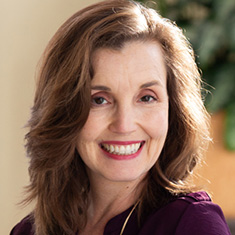
Owen will use her grant to grow the coaching offered to students in Workshop U, a postsecondary program for under-resourced students ages 18-24 in Philadelphia. Currently in a pilot phase, Workshop U is a one-year, credit bearing program. Through coursework, personalized coaching and internships, Workshop U students develop a vision for what they want their life to look like now while building the skills they need to make that vision a reality.
“The need for Workshop U emerges from a profound shift in both the labor market and the lives of young adults,” Owen says. “The journey into adulthood is a perilous one, and young people are largely expected to make it alone. This challenge is particularly acute for young people from marginalized communities, who often face additional barriers including financial instability, limited professional networks, and inadequate access to mental health support.”
Owen, a professionally trained coach with more than 20 years of experience, was invited by the co-founders of Workshop U to help create the coaching component in the program. During Workshop U’s first pilot year, Erin taught a year-long course to students that focused on cultivating self-leadership skills. In addition, she coached students 1:1 and taught students how to peer coach one another.
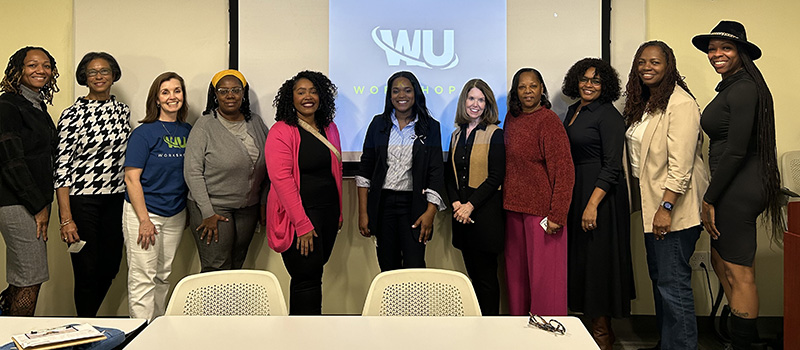
Workshop U is free to students and relies solely on grant funding. The $2,000 Schwab grant will be utilized to scale the team of coaches that work with students, including covering the costs of coaching stipends along with coach recruiting and onboarding.
Wong received a $900 grant to assist Iowa’s top scholastic chess players in competing at national tournaments and to help establish additional youth chess events.
A principal software engineer at RTX in Cedar Rapids, Wong is a volunteer for Chess in Iowa, a nonprofit organization dedicated to promoting the advancement of chess and chess players in Iowa. The club’s primary focus is students in K-12.
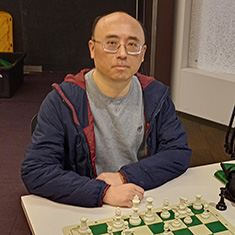
“Chess is a fun and beneficial activity for children,” Wong says. “It fosters critical thinking and problem solving skills.”
The club supports chess tournaments for students where the winners go on to represent Iowa in national competitions. Currently, the winners’ families must cover the travel and lodging expenses. The grant funding will provide stipends to these players’ families, ensuring financial issues do not prevent them from competing at the national level.
Another key goal of Chess in Iowa is to increase the number of chess tournaments available for scholastic players. With this grant, the club will discuss organizing additional events, including reinstating the Prairie Fall and Winter Classic in Cedar Rapids.
“Increasing the number of scholastic chess tournaments will encourage more children to take up the game,” Wong says. “I am honored to receive this award and am confident it will advance scholastic chess in Iowa. I am especially proud of our volunteers, whose hard work has made this achievement possible.”
Beran was awarded a $2,000 grant to support students in several STEM (science, technology, engineering, math) opportunities associated with Oregon State University. For the past eight years, Beran has taught science at College Hill High School in Corvallis, Oregon. The school serves as an alternative education program that aims to help students who are behind in credits to complete their high school diplomas.
“I particularly love to help students see what life can be like beyond and outside of high school,” she says. “While our school is down the street from Oregon State, there can be an invisible barrier between many in our community and the campus.”
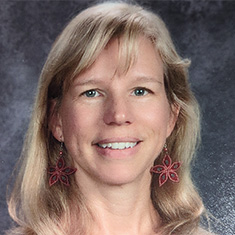
Four College Hill students will attend a 3-day summer STEM course called Toxicology run by Oregon State’s STEM Academy. Thanks to Schwab grant funding, at the end of the course, these students will get to take a tour of some other parts of campus, eat in the dining halls, and go bowling or play other games in the student center. After staying the night in a dorm, the students will explore more of campus, including a chance to meet with the financial aid department.
The grant will also be used to support a cohort for an evening science workshop called AWSEM (Advancement of Women in Science, Engineering, and Math). The group meets on Monday evenings, where they log in to a Zoom program organized by Oregon State STEM undergraduate students who are also female and students of color. Each week is an introduction to a different science topic.
“Receiving this grant means that I can offer my science students opportunities to begin to imagine themselves after high school pursuing academics and research and, just as importantly, linking their lives with like-minded peers and mentors who want to see them succeed,” Beran says.
2024 Schwab Alumni Grant recipients addressing community needs
Megan Schuknecht ’93, Bill Mabon ’95, and Donald Elmore ’98 are the 2024 recipients of the Lori Ann Schwab ’95 Alumni Grants.
Schwab was committed to making the world a better place by helping others. Her life was cut short by a sudden illness while she was studying in London in 1994.
The grant provides stipends to support specific community service projects that recipients are significantly involved with. It is open to alumni from the classes of 1992 through 1998 – the years that overlapped with Schwab’s time at Grinnell College.
Schuknecht, Mabon, and Elmore each received grants for their respective projects. It’s the first time since 2019 that there have been three recipients in one year.
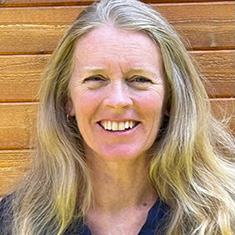
Schuknecht will use the $2,000 grant money to support five additional participants in The Or Foundation’s Mabilgu Program, which provides immediate relief and alternative economic opportunities for young women and girls in Ghana who had worked as head porters.
“While some romanticize the act of head carrying, the truth is far from romantic,” Schuknecht says. “Many of the girls in the Mabilgu Program formerly carried secondhand clothing bales exported by countries throughout the Global North, including the U.S. They were carrying the 55-kilogram bales through the narrow market lanes and beyond, literally crushing their spines.”
Schuknecht has been working with The Or Foundation for almost three years, first as part of a partnering organization and now directly for them as a contractor on their ecological restoration projects. The foundation’s Mabilgu Program (Mabilgu means “sisterhood” in Dagbani) is a structured and paid apprentice placement program with local designers, artists, and business professionals in Accra, Ghana.
The 6- to 12-month program trains young women in marketable skills, provides a living wage income, and builds bridges and mentorship networks across communities frequently divided by different regional and socioeconomic backgrounds within Ghana, Schuknecht says.
“Overall, the goal of the Mabilgu program is to empower women, helping them become financially self-sufficient, gain control of their own bodies, and prevent them from ever having to return to head carrying,” she says. “Every girl has the right to be treated with dignity, respect, and care, and to have access to educational opportunities, regardless of where they live in the world or the conditions into which they were born.”
Mabon received a $1,450 grant to purchase winter coats, hats, gloves, and warm socks for a nonprofit organization that his children have been volunteers for since they were in elementary school.
Coats of Friendship is an organization started and staffed by children – who are now teenagers – to buy winter coats for homeless and impoverished men, women, and children in South Central Pennsylvania. Tristan Rankin, a classmate of Mabon’s kids, Harrison and Margaret Ann Mabon, began Coats of Friendship at age 6 as an effort to keep people warm during the winter.
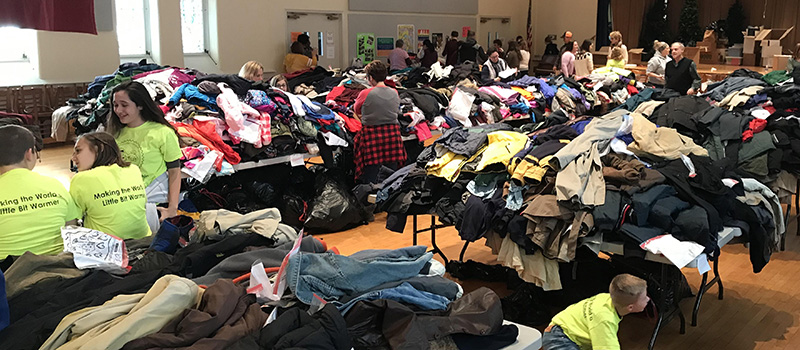
For the past eight years, Harrison and Margaret Ann have helped collect coats and raise awareness about the effort.
“This work has helped develop their interest in community involvement,” Mabon says. “We’ve volunteered with my children at the main annual distribution for years. Every year, there are disabled, homeless, and destitute people in need of coats. Two years ago, a man starting a construction laborer job the next day cried, because in addition to getting a coat he received the only size 13 steel toed boots that we had available. He needed those boots for his job, and to him it was a miracle.”
Coat collection is an ongoing, year-round activity and thousands of coats are distributed annually. While the majority of them are donated, the Schwab Alumni Grant funding will be used for purchasing coats in sizes where donations are insufficient.
Elmore’s project also involves a community initiative where he lives, an afterschool arts program for children residing in emergency shelter housing in Denham, Massachusetts. Like many communities, Dedham has experienced a recent influx in migrant families who are new to the U.S. The Massachusetts state shelter system has placed families in two locations in Dedham.
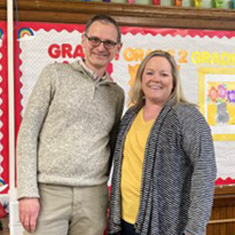
“While the town and school district have worked diligently to best accommodate these new students, the significant increase in student population and the needs for additional services have created unplanned budgetary pressures,” Elmore says. “These pressures have made it very difficult for the schools to increase and introduce new initiatives outside of the core curricular requirements.”
Elmore is a board member and the treasurer of the Dedham Arts Boosters, which provides support for many activities in the arts held through the public schools. The Arts Boosters have worked toward implementing a series of arts-related programming for children living in the shelter facilities. Initial sessions were well-received by families and volunteers.
Elmore received a $1,153 Schwab Alumni Grant to purchase additional supplies to support the activities.
“The ability to continue these activities will provide an important creative and social outlet for children living in the shelter facilities,” he says. “For children and families who ultimately move on from Dedham, we hope that this experience will provide them with a positive memory of our community and a love of creativity that they bring to their next home. For those who remain in Dedham, we hope that these programs can provide an on-ramp for interested students to become an integral part of our middle and high school arts programs as they move through the remainder of their education.”
Two 1993 Grinnell grads awarded Schwab Alumni Grants
John Brentnall ’93 and Tara M. Neavins ’93 are the 2023 recipients of the Lori Ann Schwab ’95 Alumni Grants.
Schwab was committed to making the world a better place by helping others. Her life was cut short by a sudden illness while she was studying in London in 1994.
The grant provides stipends to support specific community service projects that recipients are significantly involved with. It is open to alumni from the classes of 1992 through 1998, the years that overlapped with Schwab’s time at Grinnell
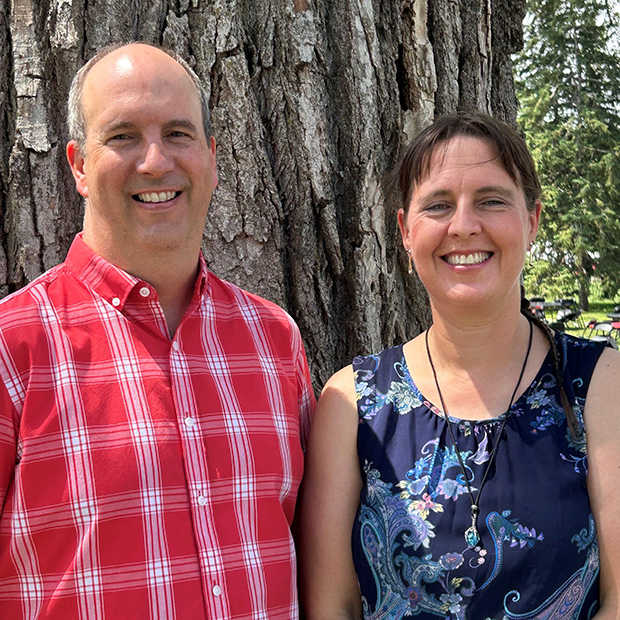
Brentnall and Neavins each received $2,000 grants for their respective projects.
Brentnall’s project is to purchase e-books and audiobooks for Quatrefoil Library so that LGBTQ+ youth and their parents have access to these essential resources regardless of geographic location.
Quatrefoil Library is a community center in Minneapolis that cultivates the free exchange of ideas and makes accessible LGBTQ+ materials for education and inspiration. The library has a collection of over 20,000 materials. It is 100 percent volunteer-run. Library membership is free and open to all.
Brentnall’s relationship with Quaterfoil stretches back to the late 1990s when he became a member and patron. He joined the Board of Directors in 2021 and recently stepped into the role of treasurer.
“This project is important to me because I was a gay teenager without access to supportive resources in the school or public libraries in my hometown of Creston in southwest Iowa,” Brentnall says. “The only information found about LGBTQ people in the library catalogs during the 1980s was located under the topic ‘homosexuality’. Books opened the world to me as a little boy, and I remember being disappointed at being unable to find a range of materials to read and digest about my sexual orientation.”
In Minnesota and other states groups have put pressure on school boards, libraries, and state politicians to ban books they deem pro-gay and immoral. Iowa’s governor signed a bill in May banning books with certain sexual content from public school libraries (The same bill bans Iowa teachers from raising gender identity and sexual orientation issues with students through grade six.)
“Quatrefoil is committed to making challenged books freely available,” Brentnall says. “We continually add to our young adult collection so that young people may find themselves reflected and discover information to help them navigate an often-troubling world.”
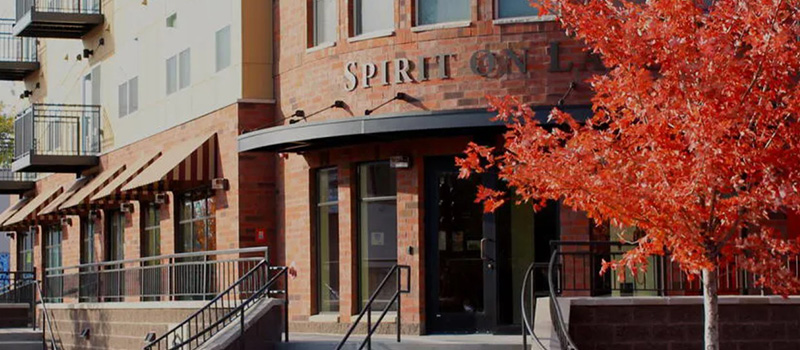
Quaterfoil’s digital collection includes the most challenged books with LGBTQ+ content, titles such as Gender Queer, All Boys Aren’t Blue, and This Book is Gay. Books by and about queer people of color make up more than 25 percent of Quatrefoil’s digital collection. The Schwab grant will be used to purchase additional digital copies of the most in-demand books along with adding titles not currently in the collection, Brentnall says.
Neavins’ project also involves nonprofit organizations and has an educational component. A Girl Scouts Heart of Central California troop, for which she is a junior level leader, will make 93 handmade, colorful blankets for survivors of sexual assault, intimate partner violence, and sex trafficking.
Neavins has been a Sexual Assault Response Team advocate with When Everyone Acts Violence Ends (WEAVE) since 2011. Neavins takes on-call shifts and accompanies survivors during evidentiary exams. She makes sure they feel heard and believed and provides as many of the comforts of home as possible during the exams, including new clothes, snacks, hot chocolate, a teddy bear, and soon colorful blankets.
“When someone experiences sexual trauma, they have lost so much,” Neavins says. “A simple act of being able to offer them a comfortable, warm, and colorful blanket and importantly, the choice of which blanket they might like, allows them to embark on a path of healing. I have seen time and time again how such simple acts of caring really make a difference.”
With the grant money, Neavins will purchase blanket fabric kits. About 30 girls from Girl Scout Troop #108 are making blankets from the kits. Neavins’ two daughters – Sofia, age 12, and Angelica 10 – are entering their sixth year with Girl Scouts.
“By bridging my love of Girl Scouts and WEAVE, it is my hope that I will continue to raise daughters who are empathetic and reach out in service to others,” Neavins says. “At a developmentally appropriate level, I want to expose our Troop #108 girls to knowing that sexual and intimate partner violence happen and that there are so many ways we can work to end such violence.”
Neavins says her volunteerism and work have centered around reducing violence in the world. Her passion was fueled while at Grinnell College when she learned of the Politically Active Feminist Alliance during New Student Orientation and later, through her work with Grinnell’s Change and Justice group. Learning about the murder of classmate Tammy Zywicki ’93 brought these issues home even more. This mission against violence led her to become a clinical psychologist at the Sacramento VA Medical Center where she specializes in treating Veterans with histories of trauma, violence, and addictions.
“I have always wanted to figure out different ways to get at the core issues that contribute to violence,” she says. “I have met so many survivors of sexual violence, and I cannot believe that in one of the wealthiest countries in the world, sexual violence is rampant. I will be in this fight as long as it takes, and I dream that my daughters will follow suit. As every presenter said during Women Take Back the Night during my fourth year at Grinnell: ‘those who believe in freedom cannot rest until it comes.’”
2022 Schwab Alumni Grant recipient improving nutrition in Micronesia
To improve health and nutrition outcomes for students at Wone Elementary School and enhance the hygiene and sanitation of the school facilities, a 1992 Grinnell College graduate turned to a grant that honors her community-minded classmate.
Lisa Ranahan Andon ’92 is the 2022 recipient of the Lori Ann Schwab ’95 Alumni Grant.
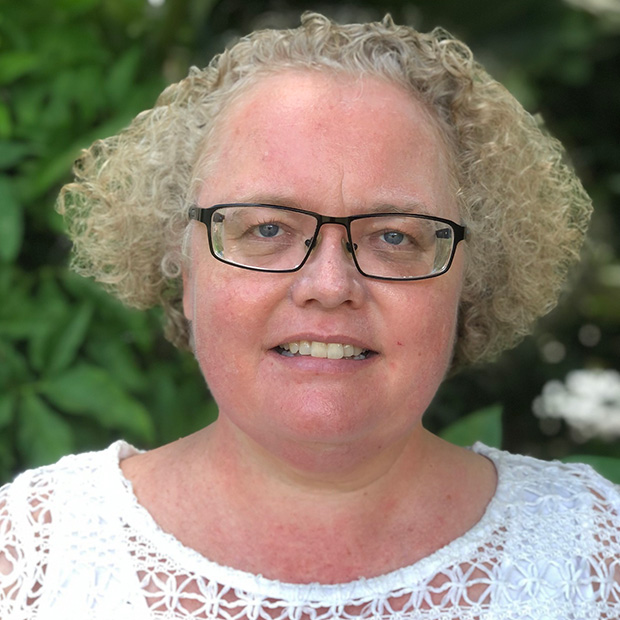
Schwab was committed to making the world a better place by helping others. Her life was cut short by a sudden illness while she was studying in London in 1994.
The grant provides stipends to support specific community service projects that recipients are significantly involved with. It is open to alumni from the classes of 1992 through 1998, the years that overlapped with Schwab’s time at Grinnell.
Andon received a $2,000 grant toward the construction of an outdoor cafeteria for the Wone Elementary School in the Federated States of Micronesia. Located about 500 miles north of the equator and 3,100 miles east of Hawaii, Micronesia is made up of four island states. Pohnpei, one of those states, is where Andon arrived in 1992 as a Peace Corps volunteer directly after her graduation from Grinnell.
She was placed with a family in an extremely remote community. The family relied entirely on subsistence agriculture and fishing, supplemented periodically with the sale of pepper.
“Some of my fondest memories of my time as a volunteer revolve around harvesting pepper and tending our gardens, as well as evenings spent cleaning our kerosene lamps in preparation for doing homework with the children and long conversations with my host father,” Andon says.
Later on, Lisa married Pidel, a Pohnpei native. Many of Pidel’s family members rely on subsistence agriculture and fishing, as do many of the other families whose children attend Wone Elementary. While Lisa and Pidel’s children are now adults, most of their nieces and nephews and other extended families’ children are students at Wone. In all, Wone Elementary Schools teaches 194 students in one of the most remote areas of the state.
“In Pohnpei, a decline in agricultural, livestock, and fisheries income have combined to drive more households below the national food poverty line,” Andon says. “Families are having to sacrifice other expenditures or resort to lower nutritional alternatives.”
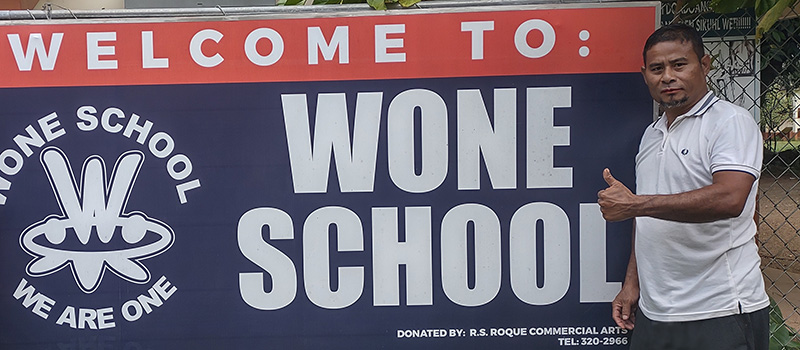
In partial response to these issues, the Pohnpei government offers a subsidized school lunch program to the elementary schools around the island. Due to limited funding, however, the lunches are not always nutritionally sufficient, and the program does not fully cover the physical infrastructure required to deliver the services, Andon says.
Therefore, Wone Principal Charles Armstrong and the school’s Parent Teacher Association stepped in to equip a kitchen at the school and establish a Public Works Committee, which planted a school garden. Volunteer parents who cook for the students every day have access to fresh vegetables from the garden, as well as the other foods provided by the parents to supplement the government-supplied staples such as rice and canned meats.
Students currently take their lunches to classrooms, or either eat them in walkways joining classrooms or under the shade of trees in the school grounds. The open-air cafeteria will provide a serving and seating area sheltered from the sun and rain, which will reduce litter and food scraps in other school areas. The Schwab grant money will be used for construction materials for the structure. Parents will provide the labor as well as tables and chairs. The plan is to have the cafeteria complete before the beginning of the next school year.
“We are active in the community and my husband is a member of the Public Works Committee,” Andon says. “We have donated seedlings for the school garden and been part of PTA activities. Playing my part in empowering friends, family, and the wider community to improve their lives and those of their children means the world to me.”
2021 Schwab Alumni Grant recipients addressing racial equity
Two Grinnell College alumni are paying tribute to a community-minded classmate while carrying out projects that promote social justice and equity.
Fredrick Mann ’97 and Tessa Sutton ’97 are the 2021 recipients of the Lori Ann Schwab ’95 Alumni Grants.
Schwab was committed to making the world a better place by helping others. Her life was cut short by a sudden illness while she was studying in London in 1994.
The grant provides stipends to support specific community service projects that recipients are significantly involved with. It is open to alumni from the classes of 1992 through 1998, the years that overlapped with Schwab’s time at Grinnell.
Mann received a $2,000 grant, which in turn was used to give stipends to youth artists and entertainers of color who performed at the Boston Museum of Fine Arts Juneteenth celebration on June 19. Attendees enjoyed music from the Confirmation Band, Aleecya Foreman, Kasia Lavon, and SeeFour in a concert curated by BAMS Fest, an organization breaking down racial and social barriers to arts, music, and culture throughout Greater Boston. There also was art making, spotlight talks, and a film showing. Museum admission was free that day.
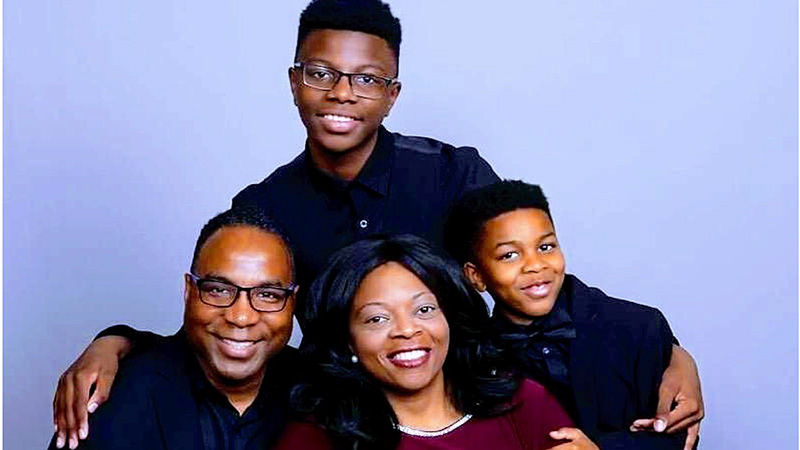
“The goal of the celebration was to create more opportunities for diverse youth and community members in Boston to engage with the Museum of Fine Art and feel welcome and part of all the artistic spaces,” Mann says. “I’m very grateful to be able to use the grant to do something positive for the larger community. While I’d imagine performing at the museum was itself special, being able to also provide the performers with a stipend to acknowledge their contribution was important.”
A clinical coordinator in the department of psychiatry at the University of Massachusetts Medical School, Mann’s interest in helping the museum become more welcoming and inclusive stemmed from a 2019 incident where minority middle school students said they were subjected to racism by staff and two visitors during a field trip.
“Instead of running away and feeling the need to boycott or discard the museum, I channeled my learning from Grinnell College to move closer and create situations where there is constant learning,” he says. “I felt it was important to sponsor a program that helps people see that it should be a museum for all people.”
The Juneteenth event also launched another community initiative Mann organized called the World of Wellesley Challenge. Mann lives in Wellesley, Massachusetts. He compiled a list of 25 Massachusetts museums or cultural spaces that have images and stories discussing African American or African diaspora cultural traditions and history.
“The challenge curates for people exhibits that they can go explore,” Mann says. “It’s meant to provide a focal point for stories that people may be unaware about. Once they discover these stories, they can take a photo or upload an insight on the community Facebook page to inform and inspire others to explore.”
Inspiration and community reaction to art also plays a significant role in Sutton’s project. She teaches visual arts at Lake Nokomis Community School, Keewaydin Campus, which is a Minneapolis public school. The school is shifting this fall from serving grades 3-8 to grade 2-5. The change will result in funding losses and will put a strain on the art program budget, which already lacked adequate money for art supplies, Sutton says.
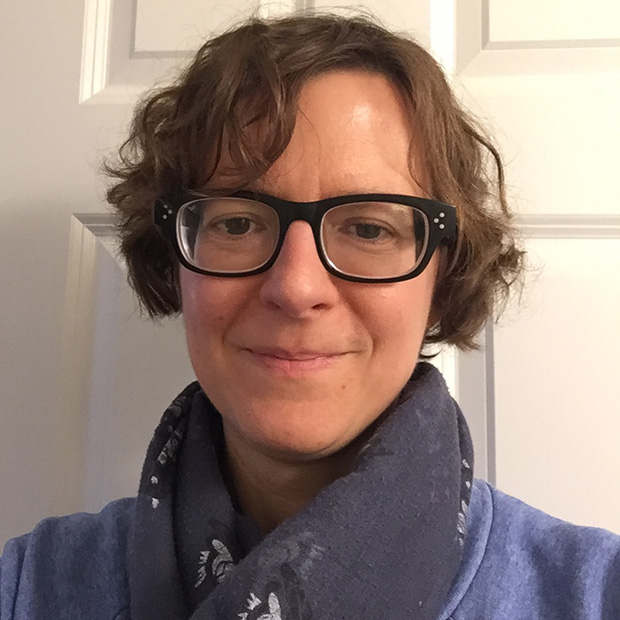
Sutton received a $1,900 stipend to purchase screen printing supplies to run an equity poster activity for kids in the school. The posters will be displayed around the building.
“The screenprinting poster equity project will not only provide the school art supplies for this exciting hands-on art process, but give people a chance to talk about how this affects them when the posters are displayed,” Sutton says.
For this assignment, Sutton will ask her students what equity means to them.
“By involving students in the creative process and having them discuss, develop ideas, and refine these into posters that they can screen print and hang around the school, they can internalize what equity really means to them on a personal level and in their daily lives in the school environment,” Sutton says. “By hanging posters in the hallways and offices, students and parents can see that the school truly supports equity by exploring it artistically and personally.
“The screen printing process itself is part of an artistic tradition rooted in social justice movements, especially in Mexican and Black Panther movements,” she adds. “By teaching kids about this history of this process and its social implications alongside the hands-on process of working with their screens, lettering, and images, they will understand the value of this art form and the concept of equity as well.”
Since graduating from Grinnell, Sutton says she has developed the intertwining goals of social studies learning within her own art practice and then with teaching art to children. She sees this project as a way to add students’ voices to the current conversations over social justice.
“With the death of George Floyd, among others, Minneapolis has become a center for these issues and kids are very aware of the social situation,” Sutton says. “But being children they may not feel comfortable or be able to articulate and voice their opinions, so these posters can help them say what they want in images and text.”
2020 Schwab Alumni Grant recipients empowering their communities
Two Grinnell College alumni will pay tribute to a community-minded classmate while implementing outreach projects for youth and families in Iowa and Oklahoma.
Kristin Stuchis ’98 and Josh Waddell ’97 are the 2020 recipients of the Lori Ann Schwab ’95 Alumni Grants. They each received $1,650 stipends.
Schwab was committed to making the world a better place by helping others. Her life was cut short by a sudden illness while she was studying in London in 1994.
The grant provides stipends to support specific community service projects that recipients are significantly involved with. It is open to alumni from the classes of 1992 through 1998, the years that overlapped with Schwab’s time at Grinnell.
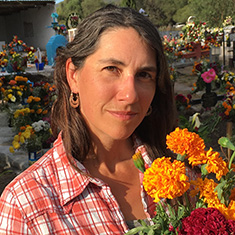
Stuchis has worked as a heritage Spanish instructor for Marshalltown High School the past two years. About 60 percent of the school’s population is Latinx.
The funds received from the Schwab grant will be used to establish a Heritage Spanish Resource Center (HSRC) that engages, inspires, and empowers students who grew up with the Spanish language. This set of resources featuring Latinx authors will contain Spanish books for a wide range of reading ability, from an elementary level to AP Spanish.
“The HSRC is especially important at this moment in time because often students see themselves portrayed in popular culture negatively,” Stuchis says. “Many students grow up without reading stories written from the Latinx perspective. This library will empower and engage students through stories that resonate more closely with their life experience told from a voice that is not often captured in mainstream literature.” In addition to becoming better readers, the HSRC will create awareness of the diversity of Latinx voices and experiences while validating students’ own stories. Stuchis observed the power of deep connection with a book when she collaborated with the local library’s book club to get 15 copies of Enrique’s Journey in Spanish. Some students said this was their story or the story of their parents; one even said it was the first time she had read a book that was about her life.
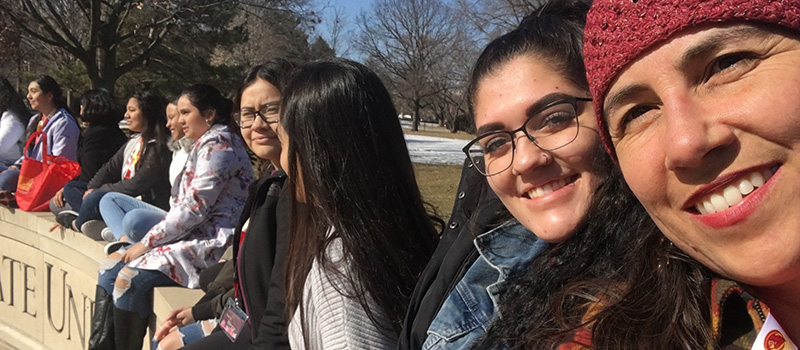
“The center will be essential to a process of creating personal narratives for future generations of students and will eventually feature work published by peers,” Stuchis says. “Ultimately, just as Grinnell College did for me, these resources will broaden their perspective, help students realize that they have important stories to tell, and to discover that through writing they have the power to make the world a better place.” Another organization striving to make the world a better place is The Ray of Hope Advocacy Center, a social service agency in northeast Oklahoma that provides crucial support, resources and advocacy to adult and child survivors of domestic violence, sexual assault, and abuse.
Waddell, a school counselor for Bartlesville Public Schools, is a liaison between the school district and Ray of Hope. He also has served as a Ray of Hope executive board member, which he describes as a truly humbling experience.
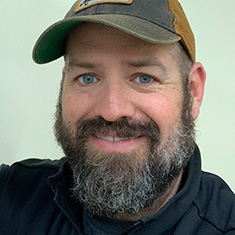
“The impact that Ray of Hope continues to make and support for the survivors of domestic violence is truly remarkable,” Waddell says. “The dedicated staff has gone above and beyond with very limited resources to serve the city of Bartlesville and the surrounding areas. Advocacy and outreach are essential themes of the mission of Ray of Hope, so the purpose of this project is to assist with existing community outreach campaigns.”
The Schwab Alumni Grant will help to further develop Ray of Hope printed materials and online resources for purposes of creating awareness of services and resources that are available to survivors and their families. By providing information about their services to those in need, it may lead to more people seeking help for the dire situations that they regrettably face on a day-to-day basis.
“I am truly humbled and honored to receive the Lori Ann Schwab ’95 Alumni Grant and look forward to seeing the lasting impact that this award will have on the Ray of Hope organization, the survivors of abuse, and the surrounding community,” Waddell says.
Schwab award recipients transforming lives through community projects
A trio of Grinnell College alumni are paying tribute to a community-minded classmate while carrying out projects in India, New York, and Michigan that will educate and inspire.
Shayne Beschta ’95, Heather May ’92, and Carrie Fetzner Ramirez ’97 are the 2019 recipients of the Lori Ann Schwab ’95 Alumni Grants.
Schwab was committed to making the world a better place by helping others. Her life was cut short by a sudden illness while she was studying in London in 1994.
The grant provides stipends to support specific community service projects that recipients are significantly involved with. It is open to alumni from the classes of 1992 through 1998, the years that overlapped with Schwab’s time at Grinnell.
Beschta received a $1,000 stipend to rehabilitate a small library that serves a community of more than 3,600 underprivileged children in one of the world’s most crowded cities.
When she arrived in New Delhi, India, Beschta was shocked to discover a slum community, Viiveknand, located less than two blocks from her comfortable home.
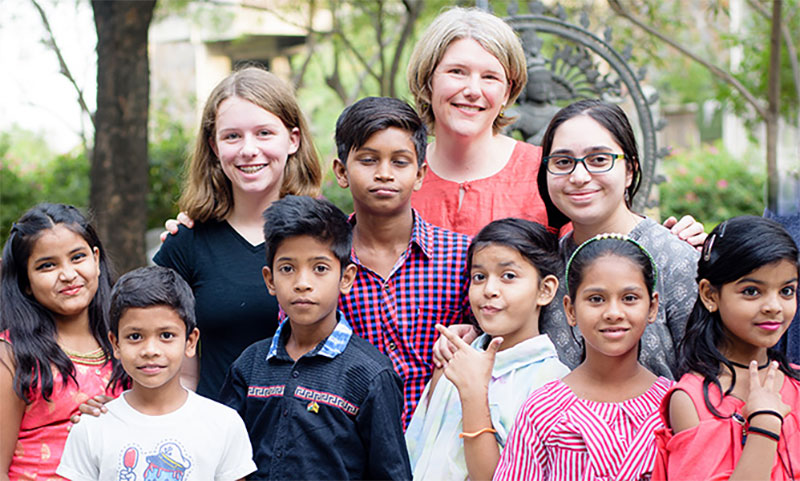
The Viiveknand community library has just 200 donated books, most of which were are outdated. Half of the books are no longer lent out due to missing pages or bindings. Despite the meager selection, children line up outside the library every Sunday eagerly awaiting a volunteer librarian to open the doors.
For the past two years, Beschta has taught English to students from Viiveknand through a program called Make A Difference, and week after week she watches the students tackle extra hours of classes with skill, enthusiasm, and pride.
“They are everyday evidence of the power of education to change mindsets and lives,” Beschta says. “During this time, I’ve come to know the camp as a vibrant, diverse, and resourceful community.”
The goal of this project is to bring ongoing educational and enrichment opportunities by making the scarce resource of books available. The grant money is being used to purchase books in Hindi and English, as well as purchase two benches and a table.”
“With a strong record of supporting education, strong ties to both adult and student volunteers from the MAD program, and strong internal and external support, I am extremely optimistic about the library’s success,” Beschta says.
In contrast to urban overcrowding, May’s project serves rural adolescents. May, an associate professor at Hobart and William Smith Colleges and artistic director of Mosaic NY, a social justice theatre company, received a $1,500 stipend for the Justice Organization of Youth (JOY). JOY is made up of teenagers who are looking to make a positive change in their communities. The students write and create theatre pieces that reflects their lived experiences as the children of farmworkers families in rural New York.
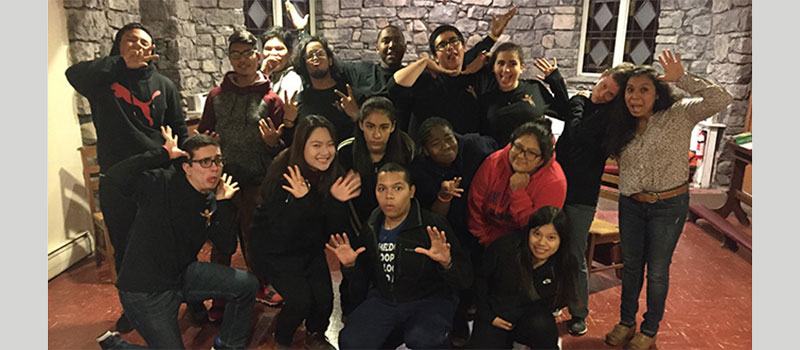
“One of the things that was most exciting to me about JOY was that the impetus for the work comes from the students themselves,” May says. “The students were concerned with a number of pressing issues in their community and they recognized that they could use the platform of theatre to build awareness and engagement in these issues.” The grant money will be used to purchase T-shirts and the design of a logo for the company as well as the costs associated with traveling to performances or educational conferences.
“I have been tremendously fortunate to collaborate with this group of creative, insightful, and imaginative students for the past three years and am excited to tell them that they will now be able to have a logo and T-shirts designed for their company,” she says. “For students who are often marginalized by their peers and their school systems, this form of validation is phenomenally important as it sends the message that their words are worth claiming and celebrating. I am so grateful to be able to use this Lori Ann Schwab grant to remind these students that they are making real change in the world.”
Another rural community initiative is being bolstered by Ramirez, who received a $1,000 stipend to purchase tables and chairs for programing at the East Olive Community Center in St. Johns, Michigan. Ramirez, an environmental, health, and safety auditor at General Motors, helped start the center in 2018 to provide educational and recreational events and programming as well as services that improve the health and well-being of local residents.
The project took on greater importance recently when the local community health center was forced to discontinue social, recreational, and fitness programming for disabled youth and adults.
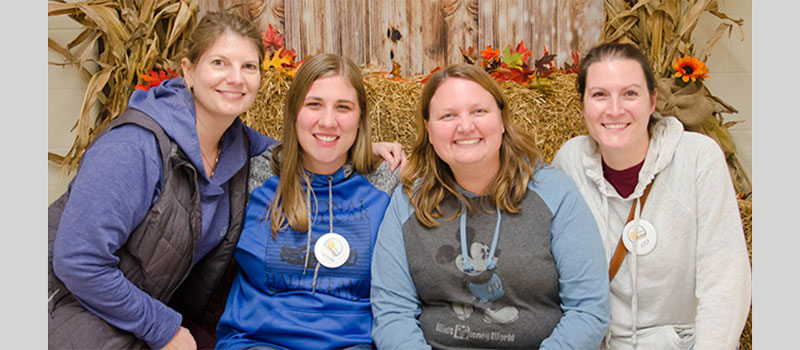
“Like many rural communities, this area lacks ready access to services and educational programs that larger communities have,” Ramirez says.
Ramirez and her fellow volunteers obtained supplies, created program spaces, and identified people to run the programs. Having tables and chairs was the missing element.
“Beyond this specific project, the tables and chairs we purchase will allow us to be more accessible to community members,” she says. “We can now confidently consider programming for participants with limited mobility including our disabled residents and senior citizens. We are excited to provide programs that improve and promote the quality of life of residents in the St. Johns area and are very humbled to be included as one of this year’s grant recipients.”
2018 Schwab grant recipients taking active role in youth development
Two Grinnell College alumni will pay tribute to a community-minded classmate while carrying out projects that benefit children’s development.
Shannon Hancock ’92 and Amy Ariel ’97 are the 2018 recipients of the Lori Ann Schwab ‘95 Alumni Grants. The grants recognizes the ongoing community service of Grinnellians who were at the College with Schwab.
Schwab was committed to making the world a better place by helping others. Her life was cut short by a sudden illness while she was studying in London in 1994.
“I am grateful and excited to receive the grant, and I feel honored to be doing this work in Lori’s name,” Ariel says.
The grant provides $1,500 stipends to support specific community service projects that recipients are significantly involved with.
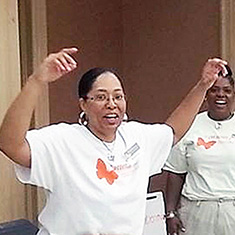
Hancock is the founder and executive director of The iMatter Experience, which provides fun, creative spaces where girls connect to positive adults who empower them to be confident, contributing members in the world.
“We ultimately want to mentor and connect girls either in one-to-one or small group settings,” Hancock says. “This grant gives us a greater reach to add more girls to The iMatter Experience and deepens the types of connections we can establish with our current girls.”
During her freshman year at Grinnell, Hancock participated in Alternative Happy Hour. A group of students traveled by van to Des Moines community centers on Fridays to work with kids.
“It was something that I totally fell in love with,” Hancock says. “It really opened something up in me, and I heard that call for youth development. It continues to be a life calling.”
Hancock played basketball at Grinnell and eventually served as an assistant women’s basketball coach for the Pioneers. She later moved to the Kansas City area where she served as a pastor. Today she is director of admissions and communications at the Saint Paul School of Theology in Overland Park, Kansas.
The iMatter Experience stemmed from Hancock’s work with third- and fifth-grade girls who had problems getting along with one another or had problem with relationships at home or school. The first iMatter Experience event was in 2013.
“We help girls navigate personal growth and relationships,” Hancock says. “We set out to develop space where parents or guardians are integral to what we do. We thought if we had children and adults hear the same thing, they could work together. It’s worked wonders.”
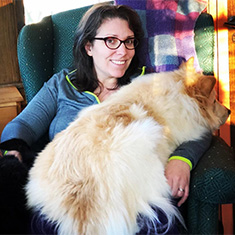
Parents and guardians also play a key component in Ariel’s project to develop sexuality education curriculum and resources for seventh-grade students at Northeast College Prep in Minneapolis.
For example, one assignment will asks student to interview their parents or guardians about their sexuality values and the rules in their families.
“This also helps the adults at home have a better picture of what’s going on in the world,” Ariel says. “The parents of fifth- and sixth-graders I previously worked with learning about puberty were freaked out at first, but by the middle of the program they were enthusiastic advocates because they had experienced meaningful conversations within their kids.”
Ariel has worked as a lawyer, youth worker, Jewish educator, and sexuality educator. She also is an author and volunteer, having assisted Northeast College Prep for the past four years. She was talking with the assistant principal about ways to continue her volunteerism in developing the sexual education curriculum. Since it required concentrated time, Ariel couldn’t run the program herself.
“We were thinking how could we get this curriculum started over the summer so that the teachers can take it and fly with it next school year,” Ariel says. “The Schwab grant was just the right size for what we needed over the summer to make it happen. It was the perfect solution to the problem we were trying to solve.”
The charter school has diverse programs and a diverse student population. It was designed by two educators to focus on how to set students up for success in life.
“The school wanted to create a sexual education program that was science based but also had a social and emotional learning piece that would teach the values of relationships and what it means to have personal boundaries,” Ariel says. “This is all being done in a cultural context where everyone is coming from really different places.”
Ariel said she appreciates the opportunity to convey a value she learned at Grinnell.
“When we are out in the world and there’s something that needs to be done, there’s probably a way to get it done,” Ariel says about problem solving. “This is a great example.”
Schwab alumni grant recipient reducing math anxiety through game play
LaShaunda Malone ’97 recently was awarded the Lori Ann Schwab ‘95 Alumni Grant to put on a math-themed Family Game Night at Stonebrook Montessori School in Cleveland.
Malone said playing games can help parents overcome their own math anxiety or intimidation in a fun environment.
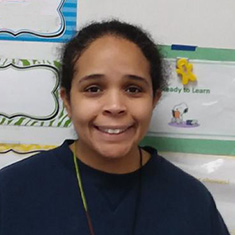
“Putting people into a situation where they are more comfortable is important because then they can pass joy related to math onto their children,” Malone said.
Schwab was committed to making the world a better place by helping others. Her life was cut short by a sudden illness while she was studying in London in 1994. The Lori Ann Schwab ‘95 Alumni Grant recognizes the ongoing community service of Grinnellians who were at the College with Schwab.
Malone lived across the hall from Schwab during Malone’s first year at Grinnell on the second floor of Haines Hall.
“As a neighbor, I would see Lori’s glowing smile each morning,” Malone said. “I think this project is something Lori would have approved of. She would have liked the fact that it was an opportunity to help kids and make them more resilient. She would have found joy in this project. I am glad we are bringing families together in her memory. ”
Malone works as a data/project manager in clinical research studies at a university in Cleveland. She earned a Bachelor of Arts from Grinnell College in political science before earning a Master of Science in public health.
While some Montessori schools have a reputation for being private and costly, Stonebrook is a public charter school that is accessible to families of all incomes, Malone said. Malone’s 4-year-old son attends the school.
“Stonebrook wants to demonstrate that Montessori education can work in public schools and communities,” she said.
In a neighborhood where 63 percent of households have an annual household income of $29,000 or below, families may not have access to high quality games that promote mathematics, number sense, and other skills, Malone said. The idea behind Family Game Night is to empower parents to promote learning of mathematics through game play.
“I was looking for ways to help parents,” Malone said. “A lot of people have been taught in a way that brought about math anxiety. Some people are intimidated by math. Game play offers a lot of benefits.”
The importance of math learning hit home for Malone after reading a 2001 book called Radical Equations, co-authored by Robert Moses, who helped fight for civil rights and register voters in Mississippi during the 1960s and was a lead organizer in the 1964 Freedom Summer.
“The most urgent social issue affecting poor people and people of color is economic access,” Moses wrote in the book. “In today’s world, economic access and full citizenship depend crucially on math and science literacy. The absence of math literacy in urban and rural communities throughout the country is an issue as urgent as the lack of registered black voters in Mississippi was in 1961.”
Society tends to teach children that only certain people are good at math, which is untrue, according to research by Stanford University Professor Jo Boaler, Malone said. That’s why it’s important to communicate with children early.
“I agree with Dr. Boaler and others that as a society, we can’t afford to have that attitude,” she said. “We need the democratization of math literacy and the U.S. democracy needs math literate citizens. As highlighted in the work of Cathy O’Neil in her 2016 book Weapons of Math Destruction, more people’s lives are being controlled by mathematical models from who gets a mortgage to personality tests for employment. Many people affected by these models don’t know the models exist and are not aware of how their lives are impacted.”
Family Game Night will take place early next year at Stonebrook. Activities will include various Peaceable Kingdom cooperative games, Richard Scarry’s Busytown game where children can find hidden pictures on the game board and Orchard Bus Stop, which incorporates adding and subtracting as players fill up their buses with passengers.
